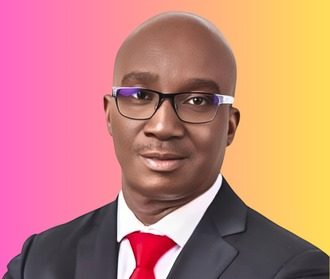The Association of Muslim Professionals (AMP) in Edo State has expressed deep concern over Governor Godwin Obaseki’s recent decision to return some public schools to their original missionary owners, predominantly Christian organizations. The AMP, while acknowledging and commending the Governor’s overall performance and his administration’s SHINE agenda, has cautioned against the potential negative consequences of this policy, particularly the risk of exacerbating religious divisions and jeopardizing the peaceful coexistence between different faiths in the state. They argue that this move could create a sense of exclusion and marginalization among Muslim students, potentially undermining their access to quality education.
The AMP’s primary argument centers on the potential for heightened religious tension. They warn that returning schools to religious organizations could introduce an element of discrimination, where students from different faiths may feel unwelcome or treated differently. This concern stems from the perception that missionary schools might prioritize religious instruction and practices aligned with their specific doctrines, potentially alienating students from other religious backgrounds. The AMP argues that this could lead to a sense of division and mistrust among students, ultimately harming the social fabric of the state. Moreover, they fear that this could escalate into larger conflicts and security challenges, making the situation difficult to manage in the long run.
The AMP also raises concerns about the historical context of these schools and the contributions of the Muslim community. They highlight the fact that not all schools were originally established by Christian missionaries, pointing to examples of schools founded by Muslim initiatives. Furthermore, they emphasize that the land on which many of these schools were built was donated by local communities, many of which have significant Muslim populations, with the intention of promoting public education for all, regardless of religious affiliation. The AMP believes that returning these schools solely to Christian organizations disregards the historical contributions of the Muslim community and reinforces a narrative of exclusion.
The issue of taxpayer funding is another key component of the AMP’s argument. They point out that over time, the original structures of many of these schools have been replaced with new buildings funded by taxpayers’ money, which includes contributions from both Christians and Muslims. This shared financial investment, they argue, strengthens the case for maintaining these schools as public institutions accessible to all, rather than transferring ownership based on historical religious affiliations. They believe that doing so would be a disservice to the collective investment of all citizens, regardless of their religious beliefs.
The AMP’s concerns extend to the potential impact on access to quality education. They express worry that returning schools to missionary organizations could create a scenario where Muslim children feel less welcome or face discrimination, potentially leading to lower enrollment rates and limited access to educational opportunities. They also highlight the possibility that the curriculum and overall learning environment in these schools might be tailored to a specific religious perspective, creating a less inclusive and accommodating atmosphere for students from other faiths. This, they argue, could ultimately disadvantage Muslim students and hinder their educational progress.
In conclusion, the Association of Muslim Professionals in Edo State has made a strong appeal to Governor Obaseki to reconsider his decision on the return of schools to missionary organizations. They have presented a multi-faceted argument based on the potential for increased religious tensions, the historical contributions of the Muslim community, the shared financial investment of taxpayers, and the potential impact on access to quality education for Muslim children. While acknowledging the Governor’s positive track record and expressing their support for his broader agenda, they have urged him to prioritize inclusive and accessible education for all citizens by maintaining the public nature of these schools. They have also offered their willingness to engage in constructive dialogue and participate in stakeholder engagements or public hearings to further discuss this critical issue and explore alternative solutions.


